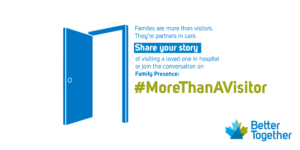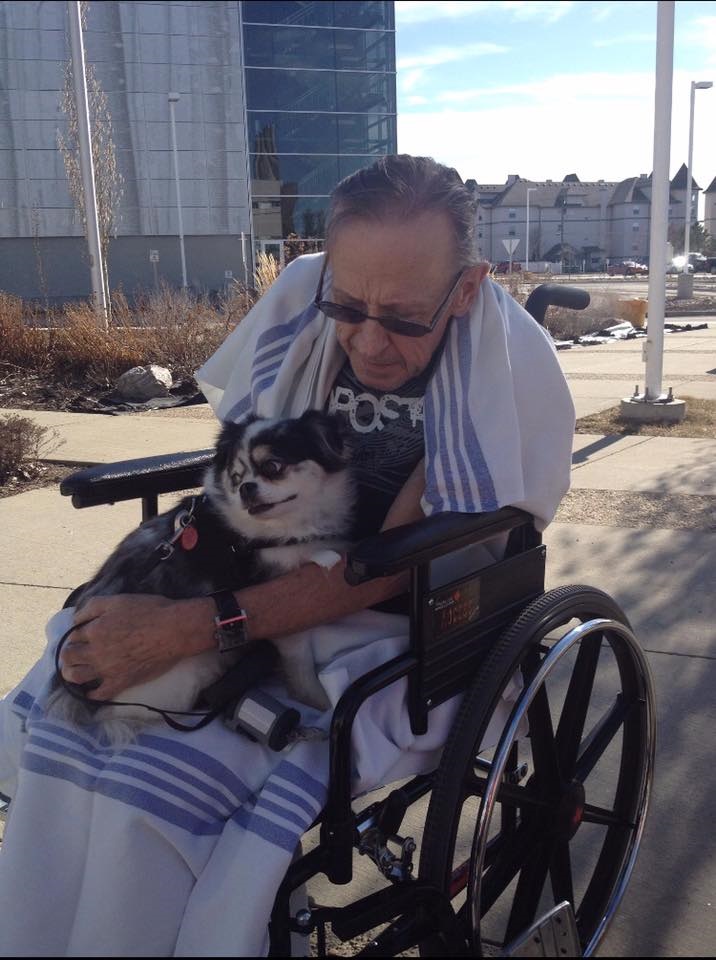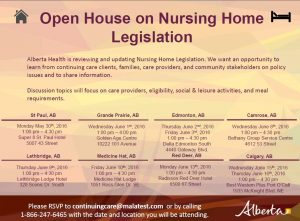
Hello Pts4Chg Community!
Over the last four months the materials for patients and families as partners and advisors have been refined a wee bit and are also now translated into French. Our small ‘collation of the willing’ (volunteer citizens, patient and family advisors and CFHI) also thought it important to also create a survey to help improve the materials upon use. I know that many of you provided feedback already (which I still have) and some of that has made it into the current version. Much of it has not though, as we needed to find a way to capture input that would likely also come in nationally. So please complete the two short surveys if you have time, so that your impressions on the info can be included when next edits are made, likely well into 2017.
If you are active on Twitter, here are some suggested hashtags for the overall Better Together campaign too, that this is part of, if you are tweeting this info out.
- #MoreThanAVisitor
- #Cdnhealth
- #shoulder2shoulder
- #familypresence
These two documents are designed to support the movement for Family Presence in healthcare.
1. The first document, Partner Tips, is intended to be used by patients and families at the point of care (e.g. at the bedside, in an office or clinic).
2. The second document, Conversation Tips, is intended to be a resource for patients and families in conversations with healthcare providers, or organizations, or communities.
Please feel free to download, copy, distribute and use these documents. You will need Adobe Reader on your device. You are welcome to adapt them to meet your local team’s needs.
These tips sheets are also available in French: http://www.fcass-cfhi.ca/WhatWeDo/better-together/resources
Want to have your say and Be part of the pilot for these documents!?
The volunteers with ‘IMAGINE CITIZENS Collaborating for Health’ would appreciate your feedback and comments about these two documents. Please click these links to complete the two surveys about each document:
1. “Partner” Tips Survey and
2. “Conversation” Tips Survey.
Comments received will be reviewed by IMAGINE CITIZENS’ volunteers so that any significant edits can be incorporated. New versions will be available periodically, every six months or so, through the partner organizations.
Thank you for your help!
Troy Stooke
volunteer
IMAGINE: Citizens Collaborating for Health & Member of Pts4Chg community








